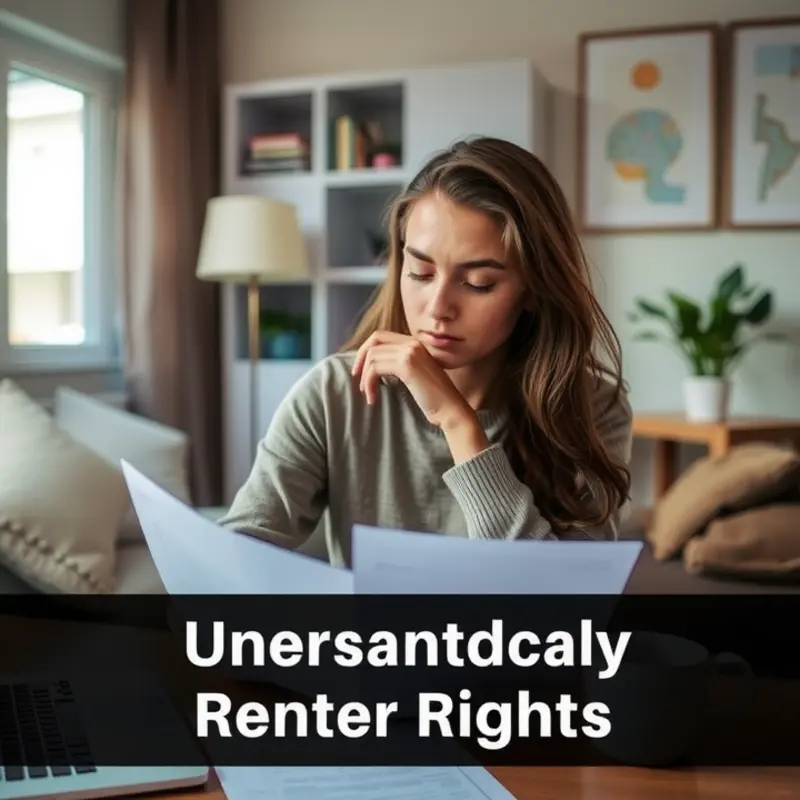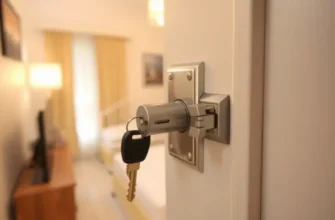Living in an apartment often comes with its own set of challenges, and noise issues can be among the most stressful for renters. Whether it’s loud neighbors playing music late at night or barking dogs, excessive noise can disrupt your peace and affect your daily life. Understanding your rights and the proper procedures for addressing noise complaints can make a significant difference in your living experience. This guide aims to equip you with clear, actionable steps for addressing noise disturbances in a way that prioritizes your safety, security, and convenience. With practical solutions tailored for renters across the U.S., you can create a peaceful living environment. Let’s explore how to effectively manage noise complaints and enhance your comfort at home.
Understanding Your Rights as a Renter

As a renter, you have the right to enjoy your home in peace. Understanding these rights is crucial when dealing with noise issues. Federally, the Fair Housing Act ensures that tenants are free from discrimination and can live comfortably without disturbances. However, noise regulations specifically are generally governed by state and local laws, lease agreements, and local ordinances.
Firstly, your lease agreement is a key document. It often contains clauses about acceptable noise levels and quiet hours. These clauses are legally binding. Therefore, any noise that violates these terms, such as loud music or construction during prohibited hours, constitutes a breach. It’s essential to read and understand your lease thoroughly to be aware of these specific terms.
State laws vary, but typically, they protect renters from unreasonable disturbances. For example, many states have laws ensuring “quiet enjoyment,” which means that landlords must ensure tenants live free from excessive noise. However, what is deemed “excessive” can vary. Generally, sounds that interfere with your ability to live comfortably at any time of day might fall under this category.
Local ordinances play a significant role as well. Cities often have noise ordinances that specify decibel levels allowable during certain times. It’s worth checking if your city has such regulations, as they can strengthen your case when filing a noise complaint.
To effectively handle noise disturbances, documentation is critical. Record the date and time of each incident, the type of noise, and how it affects your living situation. This information can be crucial if the issue escalates. You might even consider using a decibel meter to provide concrete evidence of the noise level.
Before moving to formal complaints, try addressing the issue informally. Speak with your neighbor about the noise. They may not be aware they are causing a disturbance. Presenting your concerns politely can often resolve the issue without further action.
If the problem persists, notify your landlord with your documentation. Explain the issue and refer to your lease agreement and any relevant local ordinances. A landlord has the power to enforce lease terms and encourage compliance from other tenants.
This approach aligns with understanding and effectively communicating your rights. In some cases, you may need consultancy for protection against more serious problems: explore https://borntolease.com/money-leases/tenant-eviction-protections/ for more insights.
By knowing your rights and taking structured actions, you can ensure a harmonious living environment. Should these steps fail, legal avenues are available, but they should be a last resort. Prioritizing communication and cooperation often yields the best outcomes.
Step-by-Step Procedures for Filing Noise Complaints

Dealing with excessive noise in your living space can be frustrating, but effectively managing these nuisances often starts with informal strategies. The first and often most straightforward step is to have a friendly conversation with your neighbor about the noise. Approach them at a convenient time, perhaps over the weekend or after work, and calmly explain how the noise affects your comfort and daily activities. Expressing your concerns in a polite and non-confrontational manner may lead to a mutual understanding and quick resolution.
If speaking directly does not yield the desired outcome, the next step involves documenting the disturbances meticulously. Keep a detailed log that includes dates, times, and descriptions of each noise incident. Note the duration and specific type of noise, such as loud music or continuous stomping. Having a written record provides a solid basis for a formal complaint and demonstrates seriousness about the issue.
After compiling sufficient documentation, write a formal complaint to your building management or landlord. In your letter, present the recorded incidents clearly and concisely, attaching copies of your log for reference. Outline any prior attempts to resolve the situation informally and stress your preference for a peaceful resolution to the issue.
The importance of maintaining a respectful tone throughout this process cannot be overstated. Regardless of your frustrations, remain calm and composed in all communications. This demeanor not only reflects well on you but also facilitates a cooperative dialogue with management.
Once your complaint is submitted, follow up if necessary. Request feedback from management regarding the status of your complaint and any actions taken or planned. Keep a record of all correspondence related to your complaint, as this may be useful if further escalation is required.
Additionally, familiarize yourself with your building’s policies on noise. Many buildings have specific quiet hours and guidelines, knowing these can strengthen your complaint. For insights on how to make your home a haven, check out calm apartment space tips, which could help you create a more peaceful environment despite noise disturbances.
Finally, if the noise issues persist and management fails to address them satisfactorily, consider other avenues such as mediation services or, as a last resort, legal action. Consult local tenant resources or legal advisors knowledgeable in tenant rights to explore these options.
Navigating the noise complaint process might initially seem daunting, yet following these steps can lead to a more harmonious living environment. With patience and persistence, renters can effectively manage noise issues, ensuring a comfortable and peaceful home space.
Final words
Successfully managing noise complaints is essential for creating a comfortable living environment in your apartment. By understanding your rights as a renter and following the appropriate procedures to address noise issues, you can ensure a more peaceful home. Remember, communication is key; whether it’s talking to a neighbor or your landlord, maintaining a respectful tone can facilitate a smoother resolution. By taking the right steps, you’ll not only reduce your distress but also promote a better community for everyone. A little understanding and proactive measures can go a long way in restoring tranquility in your living space.









